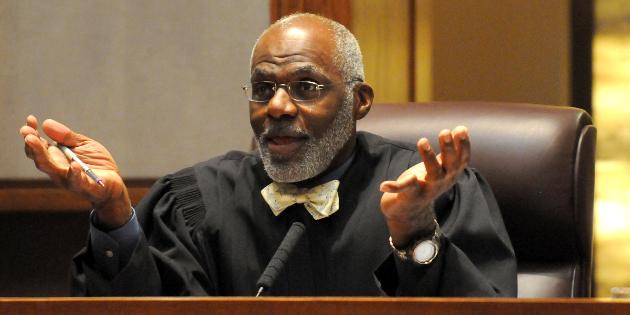 |
| Kansas State Capitol |
An extra day in Topeka, Kansas wasn't on our agenda. The car wasn't repaired yet--it had been, from the get-go, that kind of vacation weekend. There was no choice but to stay, so we holed up at a motel not far from the Honda garage and dug in, even though we would much rather have been chugging along north, back home. Wasn't going to happen.
We could have done worse. The temps had topped a century since we'd come to Kansas, and we could have been in the little old vacation house we'd rented, a Grandma's house if you've ever seen one, where the only air conditioning was in the bedrooms. There we'd sat with our kids, four of us sitting around a bed. Having fun yet?
At least Topeka had things to do, things to see. The C of C website had a ton of can't-miss attractions, including the State Capitol and the Kansas Museum of History. There were other possibilities, including, oddly enough, a museum commemoration Brown vs. Board of Education. Imagine that, I told myself, a whole museum commemorating the end to racial segregation--never thought of that.
But I was looking for another Brown, John Brown the famous abolitionist/madman. Part of the reason we were in Kansas was to know more about the famous bleeding of the 1850s, so we got in our rental car--a truck!--and visited the capital and State Historical Society's new museum just outside of town. Great choices, both of them.
 |
| Justice Alan Page |
Yesterday, Alan Page, 22-year veteran of the Minnesota Supreme Court and, not incidentally, a star defensive end for the Vikings and an all-Pro Hall of Famer, told an interviewer on Minnesota Public Radio that for him football had been pretty much of a means to an end. He'd always wanted to be a lawyer, he said, but when an uncle and an older brother played football and did well, he took it up himself and managed a startling good career.
Why a lawyer? the interviewer asked.
He just always wanted to be one, he said. Maybe too much Perry Mason. But then he said something that stopped me in my tracks right there on Hwy 75. He said he remembers Brown vs. Board of Education. He said that ruling had changed him and changed life itself. He said he was nine years old in 1954, but he can still remember reading newspaper articles and somehow understanding that the decision was going to have a profound effect on the country in which he lived. "Somewhere deep inside me," he says in that interview, "that decision had a deep impact."
I'm almost his age, and at 67 I can't do too many museums; my feet are real compainers. But I love 'em. I really do. But, truthfully, it had never dawned on me to go to the National Historical Site museum celebrating the Brown vs. Board of Education decision, right there in Topeka. It never dawned on me to go because, unlike Alan Page, Brown vs. Board of Education didn't really matter to me in a lily-white town, up north, where I grew up.
So I'm riding along yesterday, late morning, on my way back from a keynote speech I'd given to a bunch of teachers facing schoolrooms this morning for the first time in the fall term, and Alan Page is on the radio telling me that he'd watched too much Perry Mason as a kid and held the opinion that lawyers didn't do a whole lot but get rich and drive big cars--that's how it was he thought lawyering was something he wanted to be.
Then came Brown vs. Board of Education. He knew, even though he was only nine years old, that the world had changed.
Racism isn't always hate. Sometimes it's just a matter of neglect. "Hmmmm--a museum for Brown vs. Board. Isn't that interesting? There any coffee left in that pot?"
Black lives matter.
I'd just been telling teachers how important their jobs really were in the scheme of things, but I forgot to say that one of those jobs, one of the offices all of us fill even when we stand in the front of the classroom, is the profession of learning.
Call it a Minnesota epiphany, if you will, right there on Hwy 75, somewhere around the Hills turnoff. In a moment, Brown vs. Board made so much difference.
 |
| Michelle Obama at the Brown vs. Board of Education National Historical Museum, Topeka, Kansas |
1 comment:
http://dakotafreepress.com/?s=picnic
The above might be nice diversion for Siouxlanders
Tolstoy is reported to have observed about the French in 1880 "Why do they love us so?" -- according to Mike King on Red Ice Radio. New Americans might ask themselves the same question when they are asked by our political elites to join the anti-white coalition. After the Tzar abdicated the French refused him entry and he and his family were later tortured to death on orders of New York banker Jacob Schiff.
Post a Comment